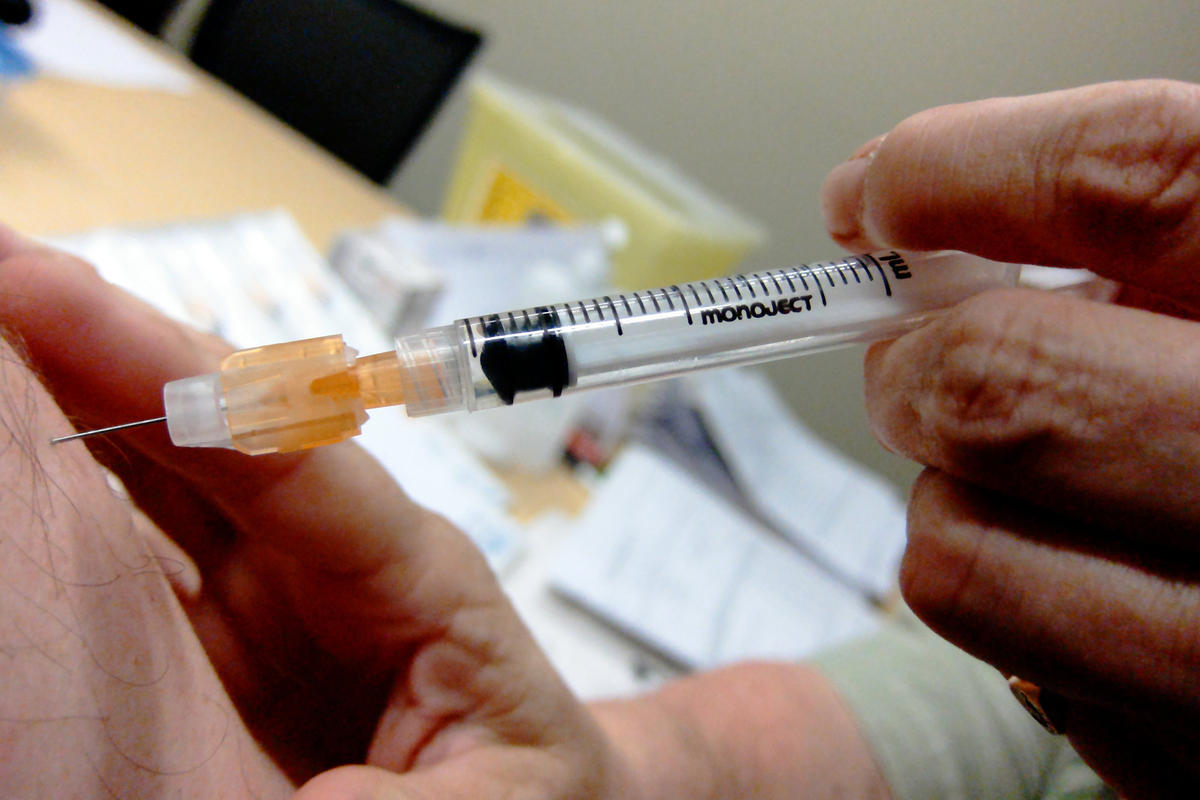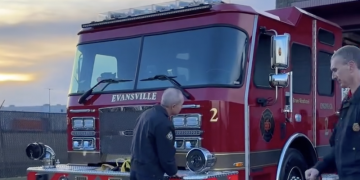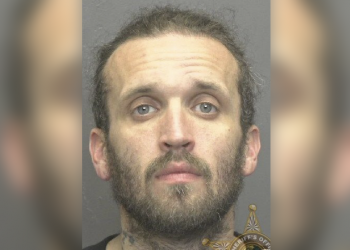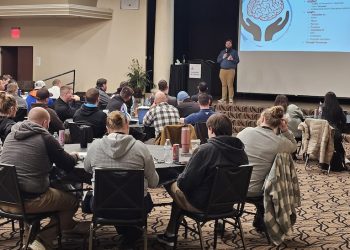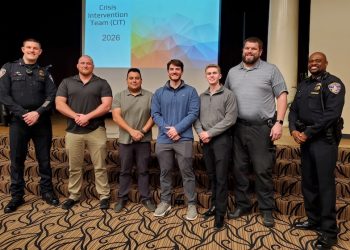Bloomington, Indiana – If all goes according to plan, frontline health care workers could get their first vaccination for COVID-19 as soon as Dec. 21, IU Health south central region president Brian Shockney said in a Friday afternoon news conference.
That date could change, he said, but “we are planning to begin on the 21st of December, barring nothing happens between now and then.”
And if vaccine approval and production goes according to plan, Shockney said, IU Health’s goal is to be vaccinating other essential workers outside of the health care industry by mid- to late January.
Two area Indiana University Health hospitals, in Bloomington and Paoli, are preparing to administer COVID-19 vaccinations to health care workers as part of a batch of hundreds of thousands of doses coming to Indiana, Shockney said. This week, those facilities received freezers for storing the vaccine. For the first two weeks of vaccine distribution, the state health department also will place workers in the facilities to ensure supplies are restocked as needed.
The Pfizer version of the COVID-19 vaccine, which is expected to be the first approved in the United States, requires two shots to be effective, with the second coming three weeks after the first.
Shockney said enough supplies should be available for all frontline employees at health care facilities throughout the state, although some may choose not to be vaccinated.
“That doesn’t mean just IU Health — that means all frontline health care workers in our communities will be coming to us for vaccination,” he said. “We know that at a minimum, in the initial release in the first couple of weeks for health care workers, we will have enough doses in the state of Indiana to vaccinate all frontline health care workers.”
In the coming weeks, licensed health care workers should receive an email to link them to an application for scheduling vaccinations.
Once all frontline workers who wish to be vaccinated go through the process, Shockney said, the next step will be to vaccinate others in the industry who are in health care facilities but don’t directly interact with patients on a daily basis. Then, he said, they’ll move on to other essential workers in the community.
